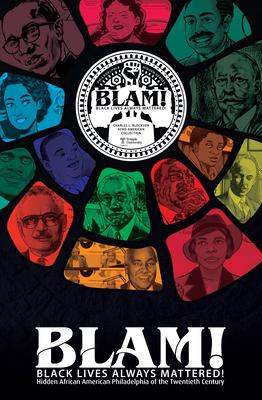African American history has produced countless exceptional heroes, leaders, and role models. The graphic novel, BLAM! Black Lives Always Mattered!, tells the inspiring stories of 14 important Black Philadelphians, such as opera singer Marian Anderson, civil rights leader W.E.B. Du Bois, and "Father of the Harlem Renaissance," Alain Locke.
Every profile is vibrantly illustrated with facts and images that emphasize each individual's life and accomplishments. Portraits in this informative volume include architect Julian F. Abele--who designed several Philadelphia landmarks and was the first Black man employed by the white-owned firm--and philanthropist Ruth Wright Hayre--who became the first Black principal of a public high school (William Penn), a superintendent of Philadelphia schools, and the first woman to head the Board of Education in the city.
All of the subjects in BLAM! Black Lives Always Mattered! overcame discrimination and racism as depicted in the vivid graphic panels. Other profiles feature: politicians and civil rights activists Ethel D. Allen and Crystal Bird Fauset; physician Walter P. Lomax; civil engineer Frederick Massiah; civil rights leader and councilman Cecil B. Moore; photojournalist John W. Mosley; Christopher J. Perry, the founder of the Philadelphia Tribune; and the religious leaders, the Reverend Leon H. Sullivan and Father Paul M. Washington.
The graphic panels were designed by an esteemed group of artists of color: Damali Beatty, Akinseye Brown, Dylan Caleho, Andrew Dalhouse, Nancy Devard, Micheline Hess, Mike Leeke, Nile Livingston, Christine Kerrick, Jamar Nicholas, Will Rosado, and Dwayne Turner.
In addition, BLAM! Black Lives Always Mattered! provides activities for students, suggestions for further reading, and sketchbook pages that present the artists' process. Taken together the images and history show the lasting contributions and pioneering achievements of these notable Black women and men in Philadelphia.
Produced by the Charles L. Blockson Afro-American Collection with the support of the Pew Center for Arts & Heritage
